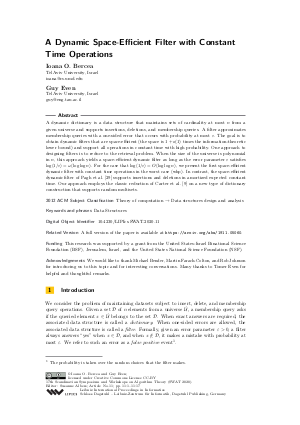LIPIcs.SWAT.2020.11.pdf
- Filesize: 0.54 MB
- 17 pages

 Creative Commons Attribution 3.0 Unported license
Creative Commons Attribution 3.0 Unported license


































Feedback for Dagstuhl Publishing